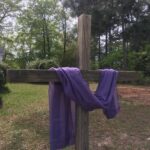
Matthew 21:6-11 NIV 6 The disciples went and did as Jesus had instructed them. 7 They brought the donkey and the colt and placed their cloaks on them for Jesus to sit on. 8 A very large crowd spread their cloaks on the road, while others cut branches from the trees and spread them on the road.
9 The crowds that went ahead of him and those that followed shouted, “Hosanna to the Son of David!” “Blessed is he who comes in the name of the Lord!” “Hosanna in the highest heaven!” 10 When Jesus entered Jerusalem, the whole city was stirred and asked, “Who is this?” The crowds answered, 11 “This is Jesus, the prophet from Nazareth in Galilee.”
- Luke 19:41-42 NIV As he approached Jerusalem and saw the city, he wept over it and said, “If you, even you, had only known on this day what would bring you peace—but now it is hidden from your eyes.
Reflections
- They missed God’s timing
As Jesus ascended toward Jerusalem, a large multitude gathered around Him. This crowd understood that Jesus was the Messiah; what they did not understand was that it wasn’t time to set up the kingdom yet
- The power of the religious blinded the spiritually
In their praise of Jesus, the Jewish crowds were quoting Psalm 118:25–26, an acknowledged prophecy of the Christ. The allusion to a Messianic psalm drew resentment from the religious leaders present
- God’s plan was in motion
Some 450 to 500 years prior to Jesus’ arrival in Jerusalem, the prophet Zechariah had prophesied the event we now call Palm Sunday: “Rejoice greatly, Daughter Zion! / Shout, Daughter Jerusalem! / See, your king comes to you, / righteous and victorious, / lowly and riding on a donkey, / on a colt, the foal of a donkey” (Zechariah 9:9)
- The people wanted their earthly objectives met at the expense of God’s eternal plans
The crowds looked for a Messiah who would rescue them politically and free them nationally, but Jesus had come to save them spiritually. First things first, and mankind’s primary need is spiritual, not political, cultural, or national salvation.
- They failed to realize God’s ways are not our ways
They could neither see nor understand the cross. That’s why, “as [Jesus] approached Jerusalem and saw the city, he wept over it and said, ‘If you, even you, had only known on this day what would bring you peace—but now it is hidden from your eyes. The days will come upon you when your enemies . . . will not leave one stone on another, because you did not recognize the time of God’s coming to you” (Luke 19:41–47).
- We worship him on Sunday then reason like the world on Monday
It is a tragic thing to see the Savior but not recognize Him for who He is. The crowds who were crying out “Hosanna!” on Palm Sunday were crying out “Crucify Him!” later that week (Matthew 27:22–23).There is coming a day when every knee will bow and every tongue confess that Jesus Christ is Lord (Philippians 2:10–11). The worship will be real then.
- Philippians 2:10-11 NIV that at the name of Jesus every knee should bow, in heaven and on earth and under the earth, and every tongue acknowledge that Jesus Christ is Lord, to the glory of God the Father.
John records a scene in heaven that features the eternal celebration of the risen Lord: “There before me was a great multitude that no one could count, from every nation, tribe, people and language, standing before the throne and before the Lamb. They were wearing white robes and were holding palm branches in their hands” (Revelation 7:9, emphasis added). These palm-bearing saints will shout, “Salvation belongs to our God, who sits on the throne, and to the Lamb” (verse 10), and who can measure sum of their joy?
I want to be there. How about you?
